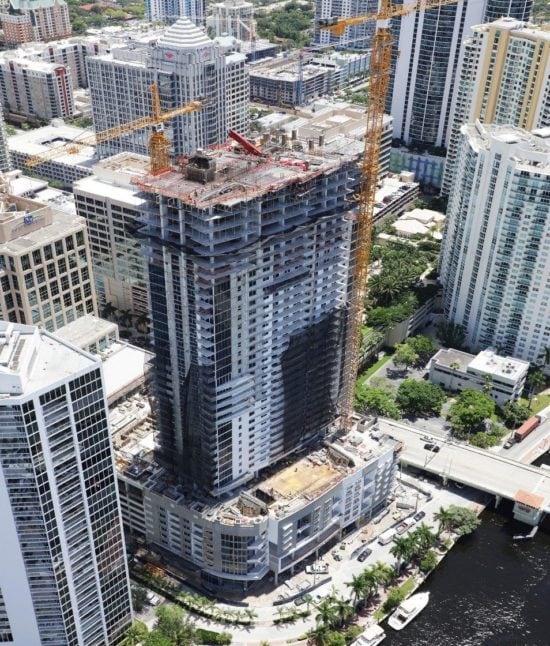

While everyone is naturally familiar with real estate, how to go about actually investing in real estate is another question altogether. Below we examine some of the most common ways that individuals can invest in real estate—from “active strategies” like real estate “flipping” or rental property ownership, to “passive strategies” such as owning REIT shares, investing in mortgage products, as well as more exclusive products that allow you to own units/shares in professionally managed, institutional-grade real estate development partnerships.
Thanks to popular television shows on HGTV, the process of buying, renovating, and selling a property—commonly known as “flipping”—is one of the most well-known ways for individuals to invest in real estate. Investors seek to identify underpriced “fixer-upper” properties that can be purchased, improved through renovations, and then sold at a profit. House flipping can provide investors with a relatively fast return on their investment and the potential for significant gains if market conditions hold steady and the renovations are completed within budget. Joint venture partnerships can also be formed, allowing one individual to provide the capital and another to provide the labour or project management, thereby enabling those with limited access to capital to take part in this strategy.
While successfully executing a short-term flip can be lucrative, it is an investment strategy that bears a high level of risk and requires a significant amount of time and energy to initially find a property, accurately assess the return potential, and then work with appraisers and lenders to secure financing and insurance. Investors then need to coordinate and rely upon various contractors and suppliers to finish the project on time and within budget. The time and energy required to manage a project means that house flipping is a strategy that is difficult to scale and challenging for those with full-time employment to devote their time to. With most projects partially financed with short-term borrowing, real estate flipping can expose an investor to potentially significant losses if the property cannot be sold at a price high enough to recover their total project costs.
When most people think of investing in real estate, purchasing a rental property is likely what comes to mind. Buying a property to rent to tenants can be a great way to build a monthly income stream, and also allows the investor to build equity and benefit from potential long-term price appreciation. In most jurisdictions, profits from selling a rental property (generally if held for at least one-year) are taxed at a lower rate than a short-term gain through real estate flipping.
Though investing in a rental property is generally lower risk than flipping real estate, it is nonetheless an active investment strategy that requires significant capital and continual time commitment for maintenance and upkeep, collecting rent, and dealing with tenants. Investors should also consider how vacancy in their property could affect their rental income and ability to make mortgage payments and cover costs such as property tax, insurance, and utilities. Finding quality tenants is also critical, as dealing with problem tenants that cause issues or fall behind on rent can lead to a high level of stress for landlords.
Real estate investment trusts (REITs) own and operate portfolios of income-producing commercial real estate. REITs may focus on specific asset classes such as retail, office, hospitality, industrial, or multifamily apartment buildings, or hold a diversified portfolio of various types. Individuals can easily invest in a REIT by purchasing shares in the market or may also be able to access private REITs through purchasing illiquid (non-traded) shares. Most investors rely on REITs for the regular income stream from distributions, with the potential for long-term appreciation in the value of the REIT shares.

Before investing in REITs, investors need to carefully understand what kind of properties that the REIT owns and in which markets. Certain types of commercial real estate—retail or hospitality, for example—are more exposed to economic downturns than others such as office or multifamily properties. Additionally, in times of severe economic distress (such as those experienced during the COVID-19 pandemic), publicly-traded REITs may experience significant fluctuations in their share price as concerned investors look to sell their liquid holdings. In these circumstances, the value of REIT shares can become quite disconnected from the value of their underlying assets. While non-traded, private REITs are less susceptible to the above concern, it can also be harder for an investor to research them and find access to credible managers with demonstrated track-records.
Individuals seeking a passive source of income may also consider the private lending market by investing in mortgages and acting as the sole lender to a borrower or as part of a pool of lenders (known as a syndicated mortgage). Since mortgage investors do not actually own the underlying property, a lien is typically registered in the lenders name in order to help protect them in the event the borrower defaults. Mortgage investments can be held within registered accounts and offer the potential for attractive returns without the volatility of public market investments. Investors can lower their risk by spreading out their mortgage investments across different borrowers, or through investing in an entity such as a mortgage investment corporation that provides exposure to a diversified pool of borrowers.
Investors in private mortgages should carefully consider the risks involved and have an undestanding of the credit history of the borrower(s), the location and type of property, the exit strategy, the loan-to-value (LTV) ratio and the priority of the loan. The risk of capital loss from default can be amplified if the LTV ratio is high or if the investor is lending as part of a second or third mortgage on the property. Though returns may be higher, the risk of capital loss is higher with second or third mortgages if the borrower defaults and the proceeds from sale of the property and paying off the senior mortgage holders are insufficient to cover the amount loaned.
For qualified investors looking for a passive way to generate significant long-term capital growth, an investment in private real estate development may be worth consideration. Investors in real estate developments—such as those available through Greybrook—benefit from partnerships with top-tier developers on large-scale development projects such as condominium buildings, single-family homes, or multifamily apartment buildings. In exchange for providing a portion of the equity required, investors share in the profits generated from the completion of institutional-grade projects—a type of investment that has historically been inaccessible for individual investors and benefits from a low correlation to other assets such as public equities or bonds. Potential returns of 16-20% per year can exceed other types of passive investment such as private lending, without the volatility of public market investments. Investors can hold the investments in registered plans and easily build a portfolio diversified by geographic market, project type, or developer partner.

Participating in a private real estate project requires an understanding of the risks involved, such as the illiquidity and long-term nature of the investment, with projects typically ranging from 4-7 years. Since the returns to investors can be impacted by the overall profitability of the development, investors should carefully consider the strength and experience of the developer and management team, the type of project proposed, and the supply and demand fundamentals of the market the development is located in.
Contact us to learn more or to speak with one of our investment representatives.